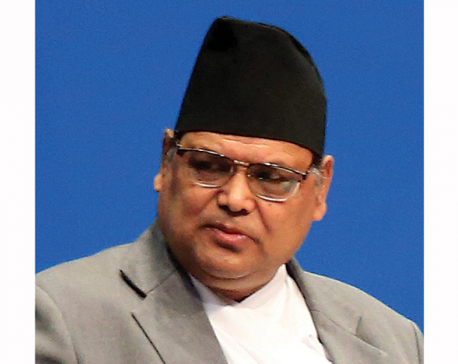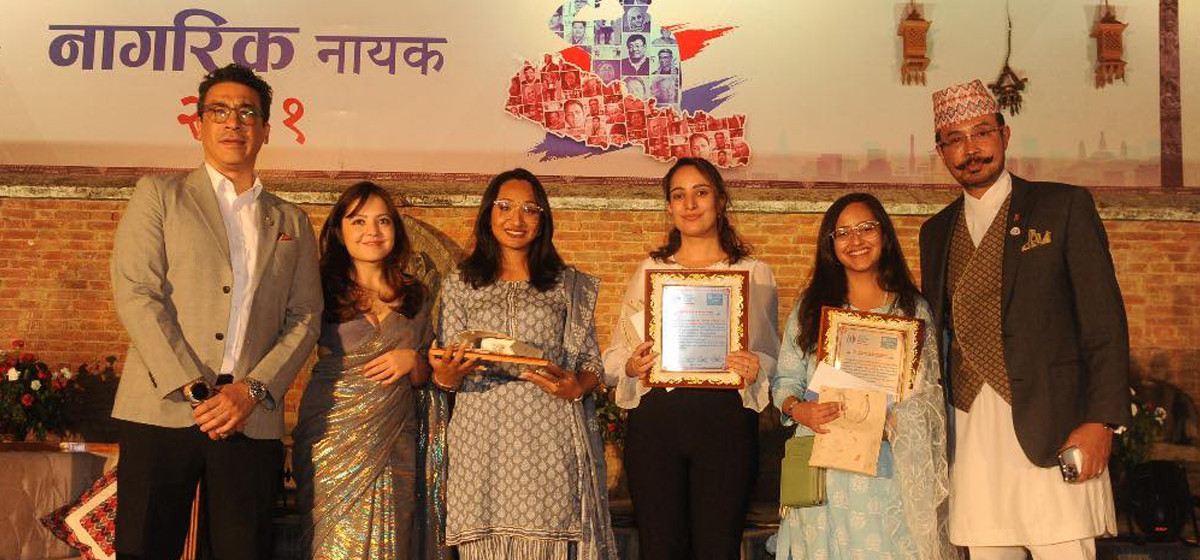
OR
cover story

In 2018, Anupama Khunjeli was appointed the CEO of Mega Bank. She became the first female CEO of a commercial bank in Nepal. But her rise to the top wasn’t something that came easy, or even according to merit, says Khunjeli.
As someone who has been working in the banking sector for 28 years, Khunjeli admits that sometimes she finds herself wondering whether she would have reached where she is faster if she had been a man, given all the effort and dedication she has always put into her work.
“Gender discrimination and biases at workplaces aren’t new problems—there are common problems that almost every woman faces in some form or the other,” says Khunjeli. And indeed, over the years, there have been numerous reports of women being mistreated and discriminated at work.
One recent example of this, as reported by the news site Quartz, is an incident in April 2019 when multiple women working at the Microsoft Corporation came out with allegations regarding discrimination and sexual harassment they have faced while working at the company. Microsoft also had 109 harassment-related complaints filed by women between 2010 to 2016.
Biases against women are also nothing new say the women The Week spoke to.
Barsha Shrestha, business head at ICRA Nepal, reveals that she has seen a lot of employers preferring to hire and promote men over women. She says that many women can’t stay late to finish their work—if that is required—either because they also have to complete their household chores or because their families (and sometimes the women themselves) don’t think it’s safe to be out after a certain hour.
“Employers also take into consideration that married women might take a long maternity leave,” says Shrestha adding that this is one factor working against women in their professional lives.
Shreejana Rana, executive director of Hotel Annapurna and the President of Hotel Association of Nepal, agrees with Shrestha’s reasonings and mentions that because many women take long leaves following childbirth, their career takes a backseat and that usually hinders professional success.
“Because we are more sensitive and in tune with our emotions than men, our children growing up well and the health of our family are things that are important to us. So, we try to make time for this instead of turning a blind eye to it,” says Rana adding that sometimes women get so caught up in all the household hustle that they can’t perform well in their work life.
There is also an issue of male colleagues and juniors not taking women and their ideas and opinions seriously when women are in a position of power. Meena Gurung, founder of Bora Studio, an environmentally responsible slow fashion brand, mentions that a lot of the times the contract workers she hires don’t listen to her directions and instead look at the man who is present at the moment for ‘proper instructions’. She also states that whenever she goes to a government office—for things like registering her brand, tax payment, etc.—the male officers are always skeptical about her running a business on her own.
Another factor why men are favored at a lot of workplaces over women according to Ayusha Karki, founder of Meraki, a contemporary jewelry brand, is because even today quite a few jobs and skills are gendered in our society. Karki explains that after operating her own company, she has noticed that men seem to be a lot better at skills like crafting and at mechanic work when compared to women. She finds women generally are better at organizational and managerial positions than men. “I think it’s because of our intrinsic natures,” she says.
Adding to Karki’s points about either gender being better at certain areas of work than the other, Nikita Acharya, founder and CEO of Urban Girl, claims that whenever a vacancy is announced at her company, it’s more women who apply than men. She suspects it is because most of the jobs offered at Urban Girl are related to sales and, from her own experience, she says that women are more efficient in this area than men.
Acharya also mentions that many times, when she attends work related meetings, whoever she is meeting with dismisses her—hardly acknowledging her presence—and only discuss serious matters with her co-founder, Kiran Timsina. “But there have also been times when people give me more importance than my co-founder. So, I can’t say that instances of people dismissing me and only talking to my co-founder is exclusively because of our gender but it does come into play every once in a while,” says Acharya.
How women can push through
Every woman The Week spoke to stated that girls and women can’t and shouldn’t lose their resolve and determination for work just because a few men don’t appreciate them and the work they do.
“Till date I’ve only focused on my own work and put in a lot of effort to complete every task I’ve done. And my hard work and determination have been my shield that’s not allowed anyone to drag me down,” says Shrestha adding that she personally hasn’t faced gender-based discrimination in her career.
Similarly, Gurung states that if a woman starts seeing the world with a gendered perspective, she will only ever blame the world for being unfair and never move forward. She also claims that if more women start speaking up about this issue then organizations will take notice and will have to change their set up to something that will be more suitable for women to work in.
Rana, however, thinks that familial support is very important for working women. She states that because her family—especially her husband—has always supported her working, she does not have to take long leaves as they take care of many things themselves. They also motivate her to push through if she is ever feeling down or demoralized.
“Just like how we always talk about a woman being behind a successful man, I think behind most successful women is a man (mostly their husband) supporting the woman with everything they have,” says Rana.
Another obvious solution to this seems to be having more women at decision making and higher position at offices and companies—only then will the problems and biases women face at work be discussed and solved. Some organizations headed by women provide a clear example of this.
At Urban Girl, Acharya and her team take immediate action if someone complains about being sexually harassed. Acharya also mentions that she and her team have done their best to maintain a friendly work environment and the women working at Urban Girl are actually enthusiastic about staying over late at office to finish their work as it doesn’t feel uncomfortable.
Likewise, under Khunjeli’s supervision, Mega Bank has started supporting one female student’s educational expenses—till they get their graduation degree—per branch. Additionally, these students will also get jobs at Mega Bank when they graduate—if they wish to pursue a career in the banking sector. Khunjeli believes that the best way women can empower and arm themselves to move forward in our male dominated society is by educating themselves.
“I believe the world at large is becoming more accepting of women leading at workplaces. It will take some time before women get equal treatment at work but I definitely see it happening in the future,” concludes Khunjeli.
anweitiupadhyay@gmail.com
You May Like This

Sexual harassment at the workplace
Deepika Paudel, senior accountant assistant at Nepal Airlines, says she feels pretty safe at her workplace. There are cameras installed... Read More...

Court allows police to arrest Mahara over alleged rape case
KATHMANDU, Oct 6: Kathmandu District Court has allowed police to arrest immediate past speaker Krishna Bahadur Mahara over alleged rape... Read More...

Theatre artists admit to sexual harassment accusation
KATHMANDU, May 1: Two of the three theatre artists who were accused of sexually harassing their female co-workers have admitted to... Read More...







Just In
- Employee involved in distribution of fake license transferred to CIAA!
- Youth found dead in a hotel in Janakpur
- CM Kandel to expand cabinet in Karnali province, Pariyar from Maoist Center to become minister without portfolio
- Storm likely to occur in Terai, weather to remain clear in remaining regions
- Prez Paudel solicits Qatar’s investment in Nepal’s water resources, agriculture and tourism sectors
- Fire destroys 700 hectares forest area in Myagdi
- Three youths awarded 'Creators Champions'
- King of Qatar to hold meeting with PM Dahal, preparations underway to sign six bilateral agreements



_20240423174443.jpg)







Leave A Comment